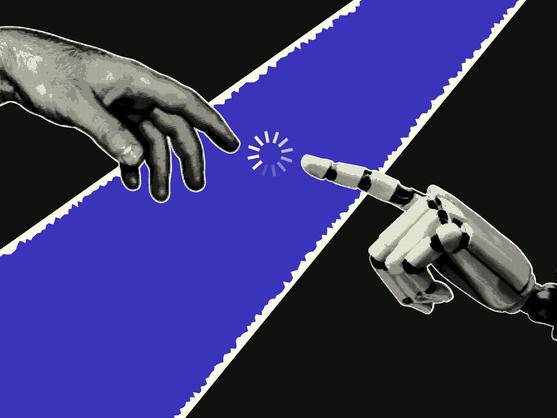Generative artificial intelligence (GenAI) has had a significant impact on marketing. It enables the creation of new services and products and the automation of existing ones (eg, customer support). It also facilitates the production of personalised experiences, generates personalised content, recommendations and advertisements and even provides “artificial samples” for marketing and consumer research. GenAI systems have the potential to transform entire industries, as reported by Boston Consulting Group. Because of this, the workforce will require a major skill upgrade.
Universities have responded to the rise in GenAI by creating guidelines on its use. These have primarily focused on limiting students’ use of it in assessments. But instead of making GenAI off-limits, we must prepare marketing students with the critical skills required to thrive in a workforce increasingly shaped by AI. Below we outline the core skills that we should incorporate into marketing education.
Skill 1. AI literacy
To effectively use AI and GenAI-based tools, students must develop the essential abilities to learn and work in an AI-enabled world. In other words, they must become AI literate.
Try this:
Get students to use one GenAI tool for three different marketing purposes (eg, to create a new product proposition or generate a strengths, weaknesses, opportunities and threats (SWOT) analysis for a company). Ask them to compare and contrast the results and assess how they performed the tasks. Encourage them to consider the ethical and responsible use of each application.
Skill 2. Critical thinking and evaluation
There is concern that a student’s overreliance on GenAI will limit their development of key skills such as critical thinking and evaluation. Indeed, GenAI tools might help students develop their lower-level cognitive skills, such as remembering information. But GenAI is not so effective in cultivating students’ higher-order cognitive abilities, such as critical evaluation and systematic decision-making, according to research. However, critical thinking skills are of fundamental importance when it comes to evaluating GenAI outputs.
Try this:
Ask students some analytical questions such as, “What are the paradoxes of marketing? Provide examples” or “Why is ethics important in the marketing profession? Provide examples”. Then, have students pose the same questions to GenAI tools and examine the results, with an emphasis on the validity, potential biases and fairness of the results, as well as on the quality of the sources used.
- Resource collection: AI transformers like ChatGPT are here, so what next?
- AI as tutor and critic: using tech to personalise education
- A four-step process to embedding AI literacy in business courses
Skill 3. AI-powered content creation
AI-powered content creation enables marketing students to generate text, images and videos based on specific written instructions (prompts) that can be used for different purposes. On the one hand, students can use AI tools to draft essays, develop study guides, generate reviews and reports and to summarise different texts such as papers, articles, reports and books, significantly enhancing both productivity and writing skills. On the other hand, such tools allow students to create customised visuals or video content for presentations and learning materials. These tools can also enrich multimedia projects and digital storytelling.
Overreliance on AI can dilute the emotional and personal tone of content, however, reducing its effectiveness. Therefore, a balanced approach combining AI with human oversight is essential for maintaining authenticity and ensuring the content is high quality. Moreover, students should understand that content generated with AI might seem original, but it is produced using existing content.
Try this:
Get students to generate a short essay on a marketing topic using the prompt: “What is the main difference between B2C and B2B marketing? Provide examples” or “Why are social media influencers effective?” Then get them to critically evaluate and discuss the output. Invite students to judge the merits of the output based on its accuracy, but also on its creativity, originality and relevance.
Skill 4. AI ethics
Like humans, GenAI can be biased. Educators and students should carefully consider the data source quality and potential biases of the tools they use.
Try this:
Get students to assess a piece of AI-generated output based on a prompt such as: “What are the qualities of a good CEO?” followed by “What are the qualities of a good female CEO?”, or “Describe a marketing professional” and “Describe a marketing professional from Nigeria”. Get students to actively compare and contrast the output and to search for and discuss potential biases. Ask them to check the sources and references and judge whether these are reliable and trustworthy.
Skill 5. AI-powered market research
In the era of GenAI, we can conduct market analysis with the click of a button thanks to its ability to create an “artificial sample”, also known as a synthetic sample or silicon sample. Examples include automated, rapid generation of interviews, surveys and completed questionnaires. Unfortunately, while these “insights” are easy to generate and interpret, they may not correctly reflect the complexity of human behaviour. We must teach students to conduct AI-powered market research effectively.
Try this:
Ask students to generate synthetic samples using GenAI tools and to compare and contrast these with samples from real consumers to assess the differences between each. This could be a part of written assessments on marketing analysis.
Skill 6. Effective questioning
Finally, the quality of AI output ultimately depends on the quality of the questions asked. Atlassian offers a guide to asking effective questions with recommendations such as being as specific as possible, using plain language, layering requests with context-specific information and using simply structured questions.
Try this:
For example, students can ask ChatGPT to generate a SWOT analysis for Apple in less than 200 words. Then they can ask ChatGPT to specify the SWOT in the context of: (1) a new generation of wearable devices, (2) to include relevant industry statistics, (3) to support the SWOT with relevant data on the latest UK consumer trends, (4) to consider the latest ethical and sustainable considerations.
Additionally, ask students to use GenAI to propose a new product or service for an existing company. Then ask them to generate a detailed set of criteria (eg, a specific industry, a market size, target audience, geographical area, etc). Then invite students to compare and contrast how asking specific targeted questions influences the GenAI responses, resulting in the significant differences in the outputs.
We encourage educators to embrace curiosity and explore innovative teaching practices with an ethical lens to ensure students become AI literate.
Rushana Khusainova is a senior lecturer in marketing; Eleonora Pantano is an associate professor (reader) in retail and marketing technology; Esther Kang is a lecturer in marketing and Samantha Ford is a lecturer in marketing at the University of Bristol.
If you would like advice and insight from academics and university staff delivered direct to your inbox each week, sign up for the Campus newsletter.




comment